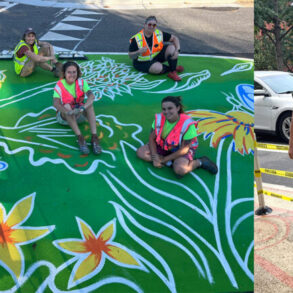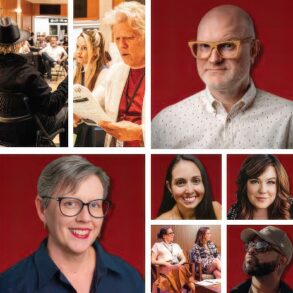
The Economic Development Department is moving ahead with a handful of adjustments to its pilot programs for Cultural Arts grants, with more changes likely to result from a comprehensive review from three outside consultants.
At this week’s Arts Commission meeting, staff from the Cultural Arts division gave an update on the funding process for the first groups of grant recipients for the Nexus, Elevate and Thrive programs as well as a separate arts education program, which as of late January had delivered $8.6 million to artists and arts organizations.
The changes are in response to widespread criticisms of the programs, which had gone through a three-year restructuring process, from applicants who found the application and scoring process unclear or unfair. Late last year, EDD enlisted the consultants Gartner, Snap Management and Measure to, respectively, review the technical side of the application portal, evaluate the user experience of the programs and determine if the programs achieved the city’s goals on equity and other related priorities.
Jesus Pantel, cultural funding supervisor, said staff is working to simplify the application language for the three programs and adding some mid-level scoring options to prevent applicants from receiving scores of 1 or zero in certain categories that were only partially completed. Staff are also working to address accessibility for non-English speakers looking to apply for the grants, and specifically making some Nexus application questions more clear and applicable to the proper groups of applicants.
The Thrive and Elevate applications will also be linked via one additional question that will allow applicants to be eligible for both programs if they are unsuccessful in their initial attempt.
The Elevate budget was also upped by $3 million for increases in the number of awards and possible award amounts given to individual artists and arts nonprofits.
Laura Odegaard, cultural investment program manager, said the change in award amounts for nonprofits – a new minimum of $40,000 and maximum of $80,000 – was intended to allow the recipients to make a bigger impact in the arts community with their projects.
“The majority of folks received the $30,000 awards and I think the impact that we want to have on the nonprofit organizations is a deeper investment for them,” she said. “What we heard and from the number of applications that we received in the nonprofit category last year, it was important for us to increase what that actual dollar amount was for the 125 awardees.”
Sylnovia Holt-Rabb, director of EDD, said the new survey to gauge feedback on the programs is expected to go public next week, with much of the consultants’ work scheduled for completion this summer.
Arts Commission members expressed some concern over whether the consultants’ recommendations would be included in the next round of applications and funding for the programs, with Holt-Rabb responding that the changes identified already by the department were made to address the most common criticisms from the initial launch last year.
“We are trying to get this right, so it may seem slow but what I don’t want to do is rush a process and then we still haven’t gotten all the kinks out around language because it’s not just EDD can say this is what we’ll do around language access,” she said. “It has to be in line with the city and anything we procure has to be in line with the city, so we are still working through that.”
Commissioner Nagavalli Medicharla asked staff to consider creating a window in the application process to allow the review panelists to reach out to applicants and attempt to rectify any unclear answers.
“It seems fair game to at least provide an opportunity to the applicant to respond to that within a two-week time frame till it’s further scored. I would really hope that you would look into that,” she said.
Photo made available through a Creative Commons license.
The Austin Monitor’s work is made possible by donations from the community. Though our reporting covers donors from time to time, we are careful to keep business and editorial efforts separate while maintaining transparency. A complete list of donors is available here, and our code of ethics is explained here.
This post was originally published on this site be sure to check out more of their content








